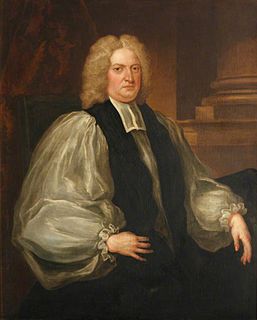A Quote by Edmund Gibson
We can often better help another by fanning a glimmer of goodness than by censuring his faults.
Related Quotes
Because the divine goodness could not be adequately represented by one creature alone, God produced many and diverse creatures, that what was wanting in one in the representation of the divine goodness might be supplied by another. For goodness, which in God is simple and uniform, in creatures is manifold and divided. Thus the whole universe together participates in the divine goodness more perfectly and represents it better than any single creature.
An artist of understanding and experience can show more of his great power and art in small things roughly and rudely done, than many another in a great work. A man may often draw something with his pen on a half sheet of paper in one day . . . . and it shall be fuller of art and better than another's great work whereon he hath spent a whole year's careful labor.
Now the Father draws us from the evil of sin to the goodness of His grace with the might of His measureless power, and He needs all the resources of His strength in order to convert sinners, more than when He was about to make heaven and earth, which He made with His own power without help from any creature. But when He is about to convert a sinner, He always needs the sinner's help. "He converts thee not without thy help," as St. Augustine says.
Some people as a result of adversity are sadder, wiser, kinder, more human. Most of us are better, though, when things go better. Knowing when to keep your mouth shut is invariably more important than opening it at the right time. Always listen to a man when he describes the faults of others. Often times, most times, he's describing his own, revealing himself.































